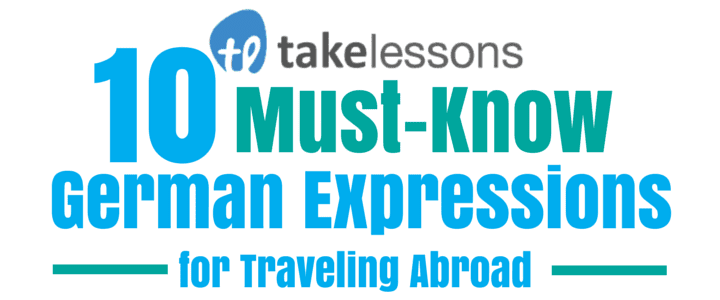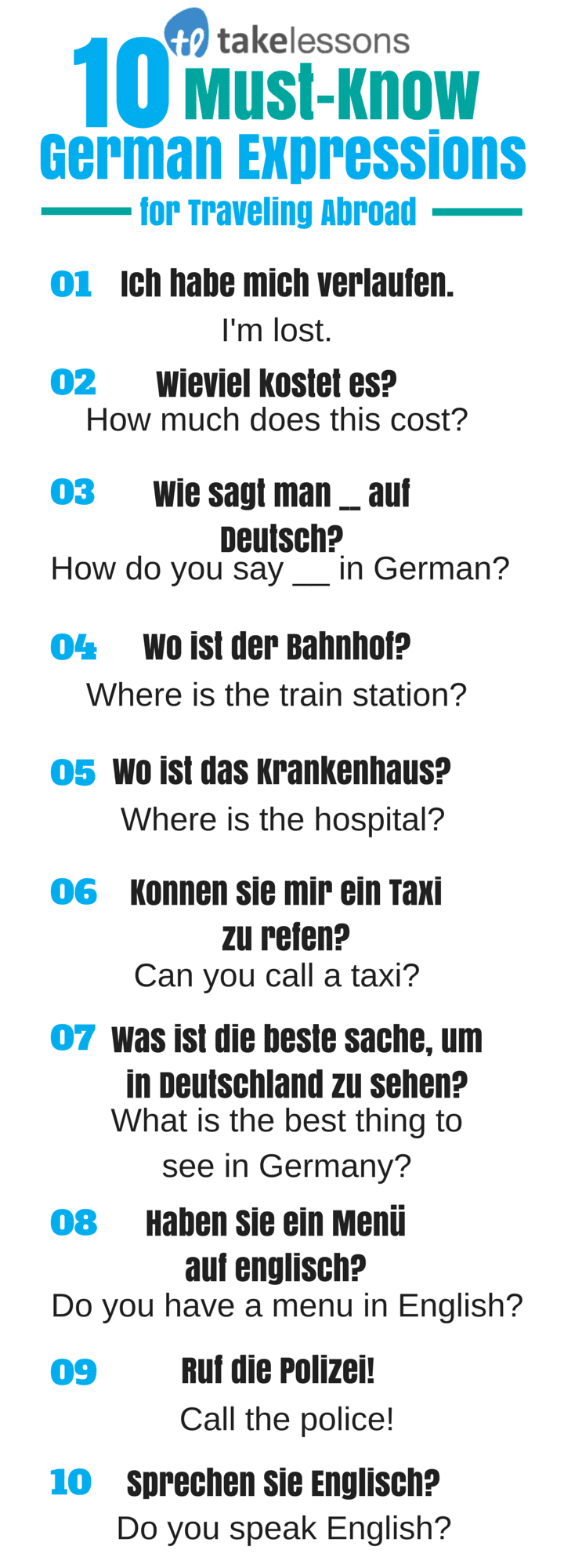
Do you dream of exploring the romantic cobblestone streets, sipping on bratwurst and beer, and taking in the breathtaking sights of Germany? If so then there is no better time than now to get a head start on learning some essential German expressions that every traveler should know.
We have compiled a list of 10 must-know German phrases and expressions that can come in handy when traveling around the country. Not only will it open up new avenues for connecting with the locals but you will also gain a whole new appreciation for their language and culture.
Plus, we provide translation tips for each expression making it easier for anyone at any level to understand! Get ready to take your journey through Germany with confidence after reading this post full of useful language skills!
What Are Common German Sayings?
When traveling in Germany, you may hear sayings and phrases that are unique to this country:
- One such phrase is “Gut von Fahrt!”, which translates to ‘have a good trip!’
- Another popular saying is “Einmal um die Welt,” meaning ‘once around the world.’ Germans use the phrase “Über den Wolken” when expressing wishes for a traveler’s safe journey; it means ‘above the clouds.’
- Finally, “Auf Wiedersehen,” is another frequently heard phrase in German speaking countries when saying goodbye–it can be translated to mean ‘until we meet again!’
Whatever your reason for visiting Germany, taking some time to learn these expressions can help you blend into the culture, ensuring an authentic experience during your travels.
If you’re looking for more advice on how to enjoy your German travels, be sure to ask your instructor for advice. And if you’re not signed up for German lessons yet, be sure to do so. You’ll learn all the most popular German expressions, plus what you see in the video below:
https://www.youtube.com/watch?v=fa-A35wtBfs
Common German Expressions in English for Your Travels Abroad
Do you have a trip planned to Germany? Traveling abroad is an exciting adventure as it can open your eyes to new customs, cultures, and people. While the experience is often amazing, there’s one thing many people don’t think about before they go—the language barrier.
You’ll find that there are many English-speaking people in Germany, but you won’t always be able to identify them. Instead, it’s best to have a few German expressions memorized or written down before you go. That way, if you find yourself in a jam, you can ask for assistance.
Below is a list of helpful German expressions you might not have thought to write down or memorize.
1. Ich habe mich verlaufen (I’m lost)
There’s a very good chance that you will get lost while exploring an unfamiliar town or city. If you find yourself confused by street names, or can’t seem to figure out where you are, say to a local “Ich habe mich verlaufe.” This particular expression means you’ve lost your way on foot and need assistance getting back on track.
2. Wieviel kostet es? (How much does this cost?)
Vendors will often take advantage of travelers and overcharge them for items. If you’re interested in purchasing goods, services or food, this phrase will come in handy. It’s also a good idea to refresh your German numbers before you go.
3. Wie sagt man … auf Deutsch? (How do you say “fill in word” in German?)
You can’t memorize every word in the German dictionary. There will mostly likely be times when you’re tongue tied. If you need to know how to pronounce a certain word, this phrase will help you.
4. Wo ist der Bahnhof? (Where is the train station?)
Public transportation is commonly used throughout Germany. If you’re planning on traveling to various cities or another country within Europe, you’ll want to know how to ask where the nearest train station is.
5. Wo ist das Krankenhaus? (Where is the hospital?)
No one wants to get sick or injured while on vacation, but that doesn’t stop it from happening. If you’re feeling under the weather or an emergency happens, it’s important to know how to find the nearest healthcare facility.
6. Konnen sie mir ein Taxi zu refen? (Can you call me a taxi?)
If it’s late or dark, a taxi is often the best and safest way to get back to your hotel. However, trying to communicate where you are via phone can be difficult if your German speaking skills are weak. Instead, use this phrase to ask someone to call a taxi for you.
7. Was ist die beste sache, um in Deutschland zu sehen? (What is the best thing to see in Germany?)
Travel off the beaten path. Get an insider’s perspective about the best things to see from a native. You might find a gem that no travel book will tell you about.
8. Haben Sie ein Menü auf englisch? (Do you have a menu in English?)
Hunger can slowly creep up, especially after walking or traveling all day. If you’re not familiar with German food vocabulary, you might want to consider adding this phrase to your list to avoid ordering something unfamiliar.
9. Ruf die Polizei! (Call the police!)
While the hope is that nothing will happen so that you have to call the police, things inevitably come up and it’s important that you know this expression.
10. Sprechen Sie Englisch? (Do you speak English?)
When all else fails, see if you can find someone to communicate with in your native language. It can ease anxiety, and you will most likely end up with a conversation that provides you with plenty of excellent tips.
What is Some German Slang?
If you’re planning to travel to Germany, don’t forget to learn some of the local German slang! While a lot of the language will sound familiar, there are phrases used among the locals that will help you fit in and understand what they are saying.
Here are a few German idiomatic expressions that may come in handy as you’re out and about.
Commonly used expressions include “alter Schwede” or “old Swede,” which is used as an expression of amazement, or “klauen,” which means to steal. You might also hear terms like “Alphabetisierung,” referring to someone who doesn’t have much education, or “ab nach hinten” for goodbye.
Having a little bit of background in German slang can help you have better conversations with those who have grown up speaking it, and provide you with an authentic experience that tourists from other countries just can’t get!
More of the Best German Expressions for Travelers to Learn
Here are a few more of the most common German expressions.
Most Common German Expressions About Transportation
Transportation is an important part of life in Germany and can provide daily challenges, so it’s no wonder that they have a wide array of idiomatic expressions when talking about the subject. From “Raus damit!” – a phrase meaning to get out of the way quickly – to “Wer zuerst kommt, mahlt zuerst” or whoever arrives first gets the best offer, German has plenty of colorful phrases to express transportation woes.
They also have some uniquely charming expressions, such as “ein Auto wie ein Huhn ohne Kopf”, which means someone who drives recklessly with seemingly no regard for their own safety.
Basic German Expressions for Dining Out
Eating out is a great way to experience the local culture of any new place. If you’ve decided to explore the rich culinary offerings of Germany, having some basic German expressions handy can be extremely helpful.
Making use of simple greetings such as ‘Guten Appetit!’ (Enjoy your meal!) and always understanding what your server says in response can be very advantageous for a delightful dining experience.
With that in mind, it’s useful to know that ‘Ich hätte gern…’ (I would like…) can be used to order food, while ‘Danke’ (Thank You) is always appreciated for someone’s hospitality or attentiveness.
Funny German Expressions
Learning a language can often be a difficult endeavor, but it can also be filled with comedic moments. One of the most enjoyable aspects of learning German are the sometimes humorous expressions.
A few examples include “Der Apfel fällt nicht weit vom Stamm” or “the apple doesn’t fall far from the tree,” referring to how children resemble their parents; “Die Katze im Sack kaufen” or “to buy a cat in a sack,” meaning to buy something without knowing exactly what one is getting; and “eine arme Kartoffel sein” or “to be a poor potato,” used for someone who is not having any luck.
These expressions offer some amusing insight into daily life in Germany, and will add plenty of laughter to any language learner’s journey!
Try These German Expressions Today!
Now that you know some key German expressions, you’re one step closer to being able to fluidly navigate travel conversations while abroad. While language barriers can be frustrating at times, remember that a little patience and effort goes a long way.
With these must-know expressions in your back pocket, you’ll feel more confident the next time you order a meal or ask for directions in Germany.
Before your vacation, you might want to consider taking a few German lessons to help familiarize yourself with the proper pronunciation and common vocabulary words. While travel dictionaries are helpful, they don’t always give you all the information you need.

Photo by
Brooke Neuman

